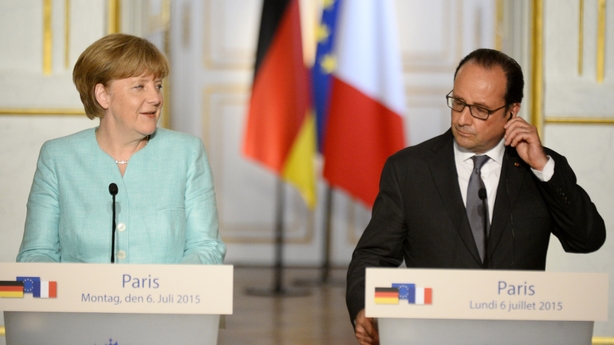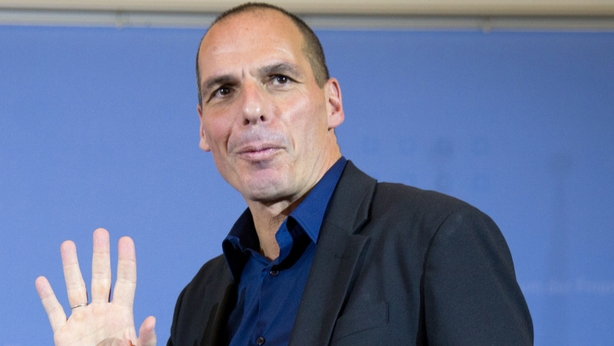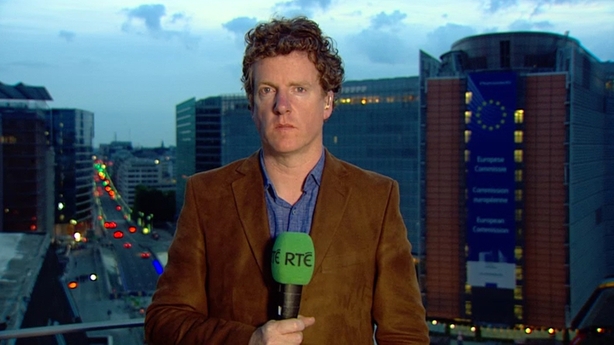Leaders of France and Germany have told Greece's government the door for negotiations with creditors remained open but urged it to make quick proposals to reach a cash-for-reform deal.
"The door is open for discussion," President Francois Hollande told reporters, standing next to German Chancellor Angela Merkel, calling on Greek Prime Minister Alexis Tsipras to make "serious" proposals quickly.
Chancellor Merkel said the conditions for a discussion on a programme involving the European Union's bailout fund were not present and urged Greece to put proposals on the table this week.
"We say very clearly that the door for talks remains open and the meeting of euro zone leaders tomorrow should be understood in this sense. But at the same time we say that the requirements for starting negotiations about a concrete ESM programme are not present at the moment," she said.
The two leaders have requested an emergency meeting of euro zone leaders in Brussels tomorrow to discuss Greece.

The Greek government is to due to present new debt proposals at tomorrow's meeting.
Meanwhile, the European Central Bank has decided to maintain emergency liquidity assistance for Greek banks at the current restricted level.
Sources have told RTÉ News that the decision by the ECB will not affect the ability of banks to dispense cash.
While the ECB has maintained the existing level of emergency liquidity assistance it is imposing a larger haircut on collateral placed by the banks with ECB to get the funds.
The Greek banks had some additional room for manoeuvre in this regard. However, the ECB's move tightens up the situation for Greek banks.
In yesterday's referendum, more than 61% of Greeks rejected creditor demands for further austerity in return for more bailout funds, a victory for the radical leftist Syriza's government that took office five months ago.
The head of the European Union's finance ministers said Greece's "No" vote has made discussions with its creditors more difficult, but the aim remains to keep the country in the eurozone.
"It doesn't bring us closer to a solution right away. In fact, when proposals are rejected that only makes things more difficult," Eurogroup head Jeroen Dijsselbloem told reporters.
Mr Dijsselbloem said keeping Greece in the euro zone "is still their objective and mine."
Mr Dijsselbloem, who is also Dutch finance minister, said the Dutch government would discuss a Greek request for additional emergency funding under the European Stability Mechanism.
Despite his comment Germany had earlier said there is currently "no basis" for talks with Greece on a new bailout package or debt relief.
"In light of yesterday's decision by Greek citizens, there is no basis to enter into negotiations on a new aid programme," Chancellor Merkel's spokesman Steffen Seibert said.
He said: "It is up to Greece to make something of this. We are waiting to see which proposals the Greek government makes to its European partners".
Regarding requests by Athens to restructure its debt, finance ministry spokesman Martin Jaeger said: "I can see no reason to enter into discussions."
Earlier, Managing Director of the International Monetary Fund Christine Lagarde said the global crisis lender is "ready to assist Greece if requested".
"The IMF has taken note of yesterday's referendum held in Greece. We are monitoring the situation closely and stand ready to assist Greece if requested to do so," Ms Lagarde said in a brief statement.
Finance minister steps down
This morning Greek Finance Minister Yanis Varoufakis announced his resignation.
In a statement, released via his twitter account, Mr Varoufakis said he had been "made aware" that some members of the eurozone considered him unwelcome at meetings of finance ministers, "an idea the prime minister judged to be potentially helpful to him in reaching an agreement".
"For this reason I am leaving the ministry of finance today."
He said he considers it his duty "to help Alexis Tsipras exploit, as he sees fit, the capital that the Greek people granted us through yesterday's referendum.
"And I shall wear the creditors' loathing with pride".

Mr Varoufakis added: "The superhuman effort to honour the brave people of Greece, and the famous OXI (NO) that they granted to democrats the world over, is just beginning."
Greece's chief negotiator in talks with international creditors, Euclid Tsakalotos, was named as the country's new finance minister.
European stock markets continued to see losses today.
The CAC 40 in Paris fell 2.01% to 4,711.54 points, while Frankfurt's DAX 30 shed 1.52% to close at 10,890.63 points.
Outside the eurozone, the FTSE 100 index lost 0.76% to 6,535.68 points compared with Friday's close. In Dublin, the ISEQ index closed down 1.5% at 6,139.97.
Analysis: Paul Cunningham

The comments made by Dr Merkel in Paris reflect her outlook on this crisis: Europe will show solidarity with the Greek people, but that is linked with responsibility - and the Greek government must bring forward credible proposals on a reform for cash debt deal.
Emphasising the positive, President Hollande stressed the door was open to Greece for talks but, he then added, there is not much time.
The latest decision of the European Central Bank reflected both how little time there is left for a country teetering on a banking meltdown.
While the ECB will continue to back Greek banks with emergency cash – it is going to make it harder to access that money, because the collateral being offered by Greek financial institutions is perceived to be increasingly risky.
The Greek government may have secured a stunning referendum result, which it believes will strengthen its hand in negotiations with eurozone finance ministers and leaders, however, it is in a very tight corner.

